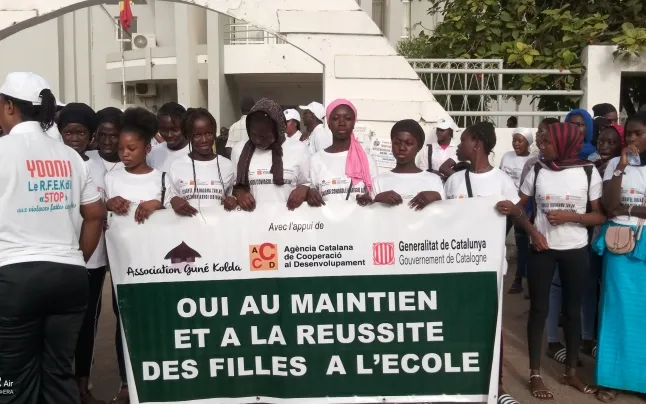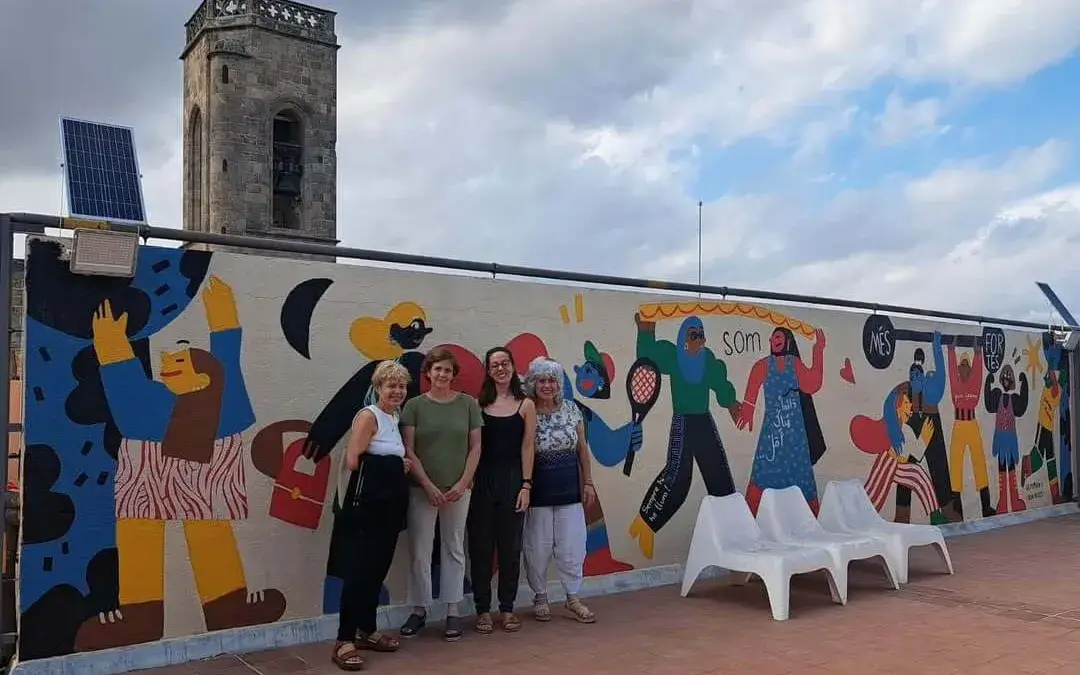A programme of the Fundació Guné places gender parity in education at the centre of the Senegalese society

The Fundació Guné has developed a project there to work on the gender perspective at schools with the aim of extending this experience to the whole of society.
Catalan organisation Fundació Guné has been working in Senegal’s Kolda region for two years together with the administration and the country’s Ministry of Education to promote the right to comprehensive education free of violence and with a gender perspective for youths in the region.
About the programme
Senegal’s Kolda region has one of the country’s highest school dropout rates in secondary education. The overarching goal is to promote the right to quality comprehensive education free of violence for girls in twelve secondary schools in the city of Kolda and its periphery. Mònica Solé, the director of the Fundació Guné that based on studies carried out before implementing the programme, the organisation was able to state that only 30% of girls finished their secondary education.
The reasons for this programme are that quality public education for girls isn’t guaranteed in Senegal. This is due to several factors, religious, political, social and cultural and economic such as early arranged marriages, teenage pregnancy or female genital mutilation.
Structural factors
The first step towards implementing the programme was carrying out research into the circumstances and reasons behind early dropout from secondary education in Kolda, where girls represented 58.2% in 2016, compared to 93% nationally, according to the 2015 CEDAW Report.
This represents a violation of the right to education that goes hand-in-hand with other flagrant violations. The research was done with the involvement of girls and also their family, educational community and local authorities to prevent abuses, early marriage, teenage pregnancies…focusing on the persons that are responsible and co-responsible for these situations”.
So, the goal was to offer girls the resources to defend their rights, allowing them to pursue their secondary education through improving their schooling environment and encouraging them to participate in school organisations.
“We wanted to provide them with the arguments so they could tell their parents they could be married, but not before they completed their studies, because this is a right”.
In this regard, this also had to be worked on with their families, and for this the Fundació Guné worked with the School parent’s associations and teachers to convince them on the need to educate their girls and to raise awareness on their rights.
We also worked with political and religious authorities. We worked with institutions to promote prevention protocols at schools and creating health committees to guaranty human rights and women’s rights as recognised in Senegalese legislation.
To solve many of these problems, quality education free of sexism is a mid-term solution. The situation, however, is complex, says Mònica Solé, because “it takes time to change ancestral and traditional dynamics that make families scared of being frowned upon. That is why it’s so important for girls to take responsibility for their bodies and decisions; they need to feel empowered to discuss certain things with their parents.”






Add new comment